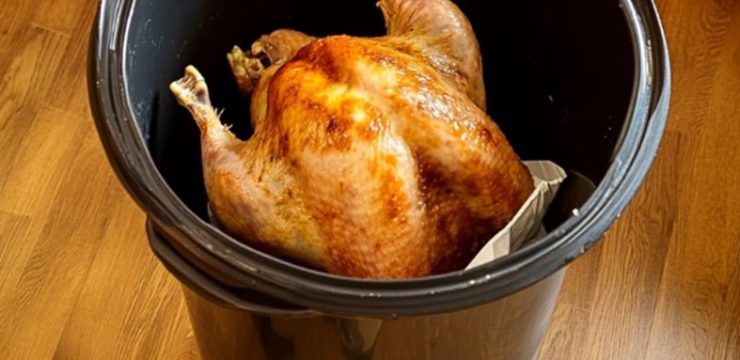Have you ever found yourself rushing to the bathroom right after eating? You’re not alone. Many people experience this sudden urge, and for some, it’s a regular part of their lives. This common reaction could be linked to a condition known as Irritable Bowel Syndrome (IBS). But what causes this immediate bowel movement, and what does it mean for your digestive health? Let’s explore the relationship between eating and bowel movements, delve into the role of IBS, and learn how to manage these symptoms effectively.

The Gut-Brain Connection: Why It Matters
To understand why you might need to use the bathroom right after eating, it’s crucial to consider the gut-brain connection. This complex communication network, called the gut-brain axis, significantly influences how your digestive system responds to food and stress.
1. The Gastrocolic Reflex
The gastrocolic reflex is a natural bodily response that occurs when food enters the stomach. Here’s how it works:
- What It Is: When you eat, your body signals the colon to contract, making room for the incoming food by prompting a bowel movement. While this reflex is present in everyone, its intensity can vary.
- Variability of Response: For some, this reflex is mild, but for others—especially those with IBS—it can be intense, leading to an urgent need to defecate shortly after meals.
2. Stress and Digestion
Stress can also play a significant role in how quickly your digestive system responds after eating:
- Impact of Stress: Stress and anxiety can speed up digestion, which can cause more frequent bowel movements. This is why many people notice that their symptoms worsen during stressful times.
- Managing Stress: Incorporating mindfulness techniques, meditation, or gentle exercises like yoga into your routine can help alleviate stress, potentially easing IBS symptoms as well.
Understanding IBS: What You Need to Know
IBS is a common gastrointestinal disorder that affects the large intestine, causing a variety of uncomfortable symptoms. The exact cause is unknown, but it is often associated with diet, stress, and changes in gut bacteria.
3. Symptoms of IBS
Common symptoms of IBS include:
- Diarrhea and Constipation: People with IBS often experience alternating bouts of diarrhea and constipation, making it difficult to predict their bowel habits.
- Post-Meal Urgency: Many individuals with IBS feel the urge to defecate immediately after eating, accompanied by bloating, gas, and abdominal discomfort, which can make mealtimes stressful.
4. Common Triggers for IBS
Certain foods and lifestyle factors can trigger IBS symptoms. Although triggers can differ from person to person, some common ones include:
- Fatty Foods: High-fat meals can overstimulate the digestive system, increasing the urgency to defecate.
- Dairy Products: For those who are lactose intolerant, dairy can lead to diarrhea and stomach discomfort.
- High-Fiber Foods: While fiber is essential for good digestion, increasing fiber intake too quickly can cause bloating, gas, and discomfort, especially for those with IBS.
How to Manage Bowel Movements After Eating
If you often experience the need to use the bathroom immediately after eating, there are strategies you can use to manage your symptoms:
5. Keep a Food Diary
Tracking what you eat and how your body reacts can provide valuable insights:
- Record Your Meals: Write down your meals and note when symptoms occur. This can help identify patterns or specific foods that trigger your digestive issues.
- Consult a Professional: Sharing your food diary with a healthcare provider can aid in diagnosing your condition and developing a personalized treatment plan.
6. Adjust Your Diet
Making dietary changes can be one of the most effective ways to manage IBS symptoms:
- Identify Trigger Foods: Try to eliminate or reduce foods that seem to trigger symptoms, such as fatty foods, dairy, or certain types of fiber.
- Make Gradual Changes: If you’re adding more fiber to your diet, do it gradually to allow your digestive system to adjust without overwhelming it.
Lifestyle Changes for Better Digestive Health
In addition to dietary adjustments, certain lifestyle changes can help keep your IBS symptoms in check:
7. Stay Hydrated
Drinking plenty of water is essential for maintaining digestive health:
- Benefits of Hydration: Staying hydrated aids in digestion and can help prevent constipation. Aim to drink at least eight glasses of water a day.
- Limit Caffeine and Alcohol: Both caffeine and alcohol can aggravate IBS symptoms, so consider cutting back or eliminating them from your diet.
8. Exercise Regularly
Regular exercise is beneficial for both overall health and digestive function:
- Promotes Healthy Digestion: Physical activity encourages normal bowel movements and can reduce IBS symptoms.
- Reduces Stress: Exercise is also an effective way to manage stress, a known contributor to IBS flare-ups.
When to See a Doctor
If you notice persistent changes in your bowel habits after eating, it’s important to seek medical advice:
9. Diagnostic Tests
A healthcare provider may recommend tests to rule out other gastrointestinal conditions, such as infections, celiac disease, or inflammatory bowel disease (IBD). These tests can help confirm whether IBS is causing your symptoms.
- Treatment Options: Depending on your diagnosis, treatment may include dietary changes, medication, or even therapy to manage stress-related symptoms.
Conclusion: Take Control of Your Digestive Health
Experiencing the need to poop right after eating can be frustrating, particularly if it’s related to IBS. However, understanding the connection between eating and bowel movements, identifying triggers, and making gradual lifestyle changes can help manage symptoms and improve overall digestive health. Remember, each person’s digestive system is unique, so it’s essential to find a routine that works best for you. If your symptoms persist, consult a healthcare professional to take control of your gut health.





